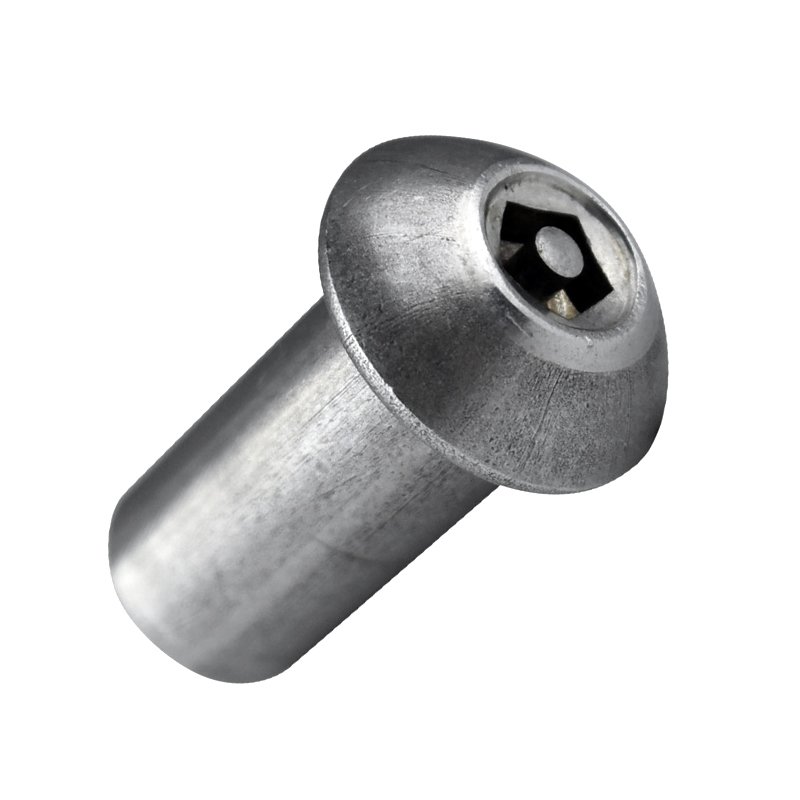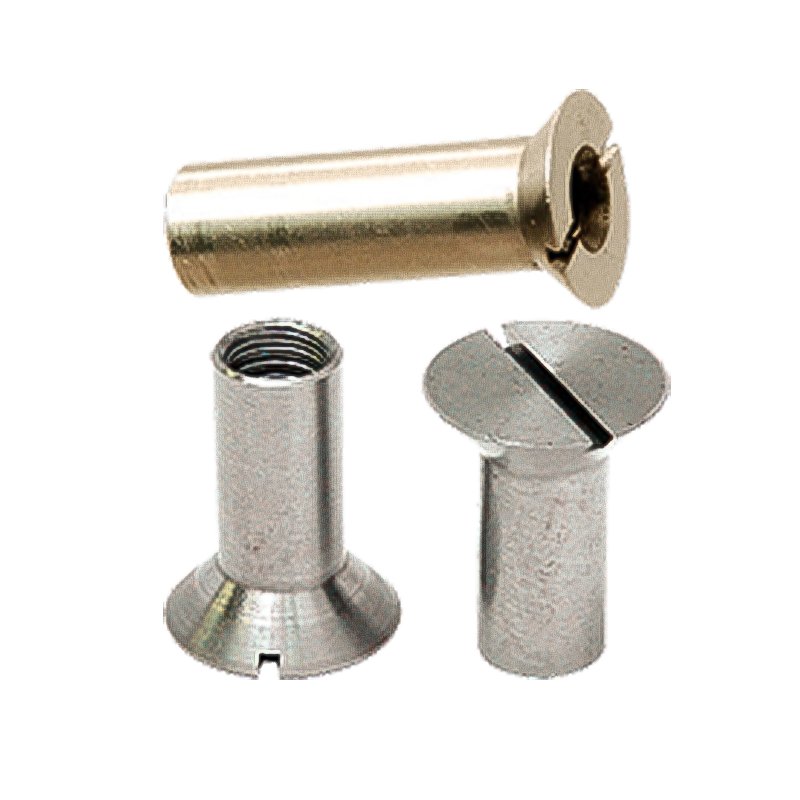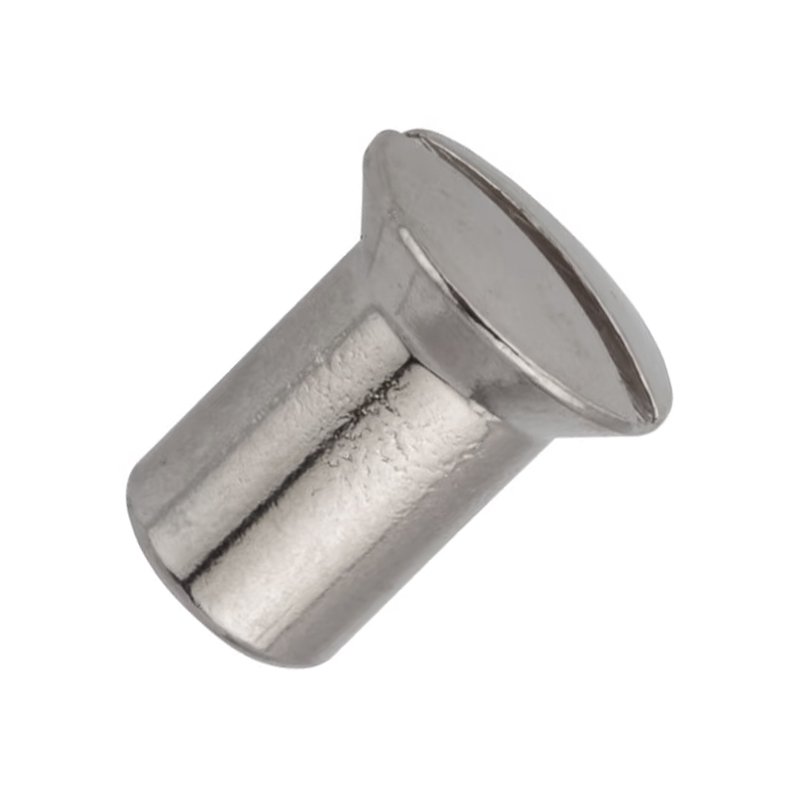
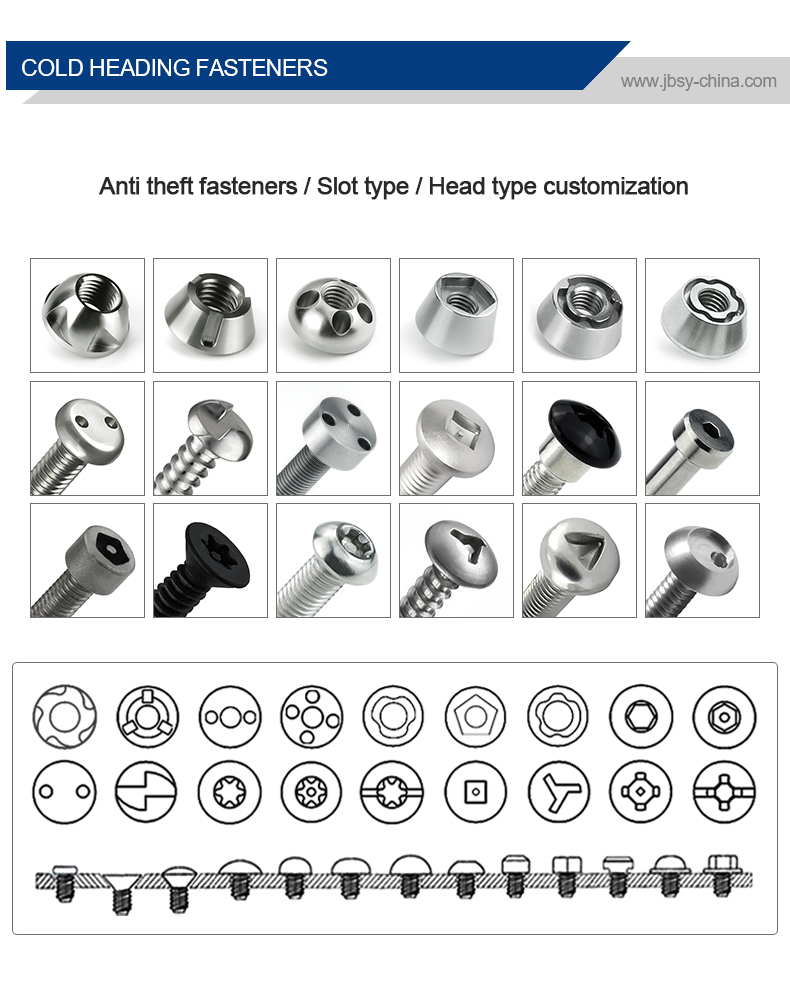
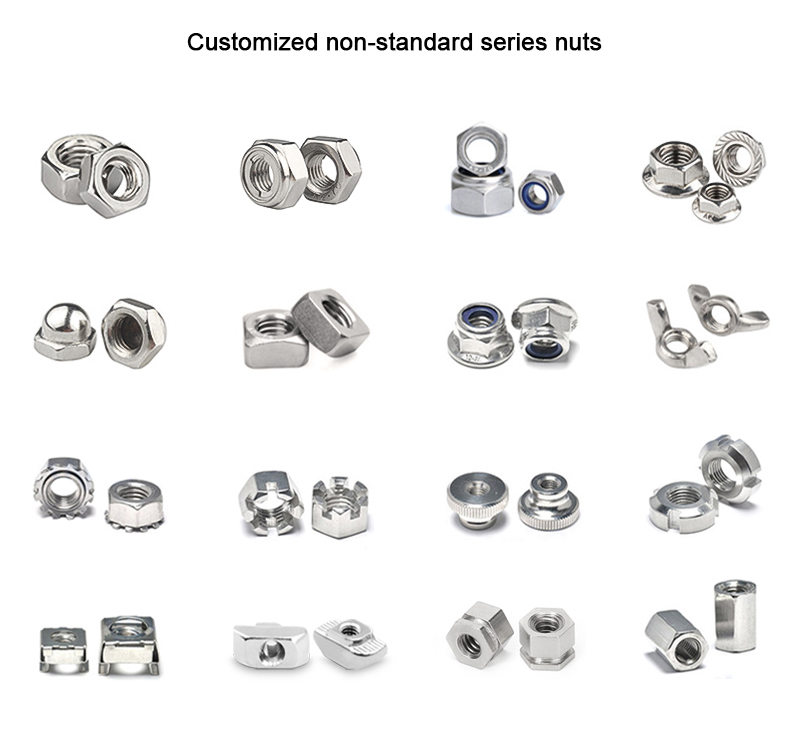
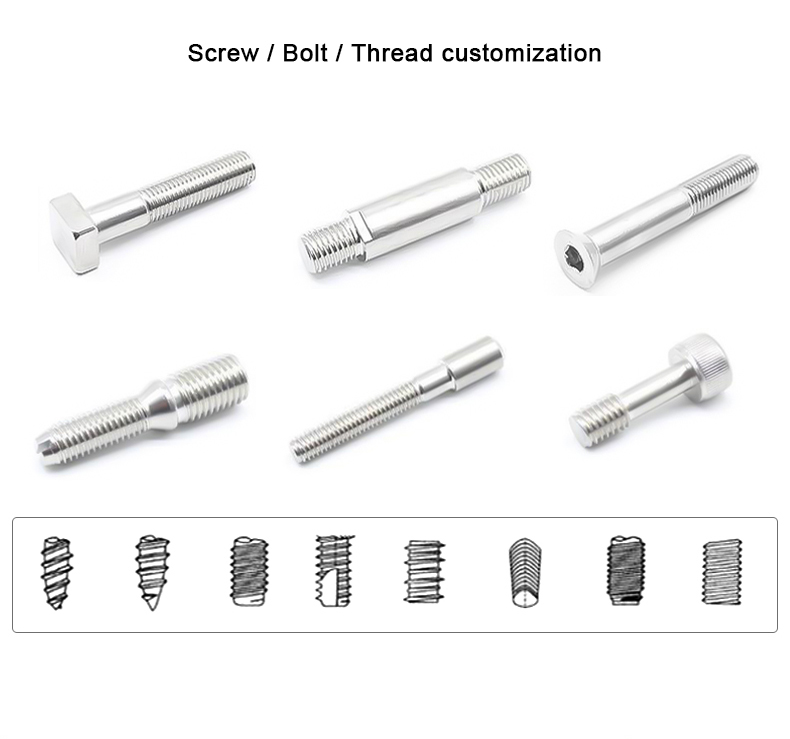
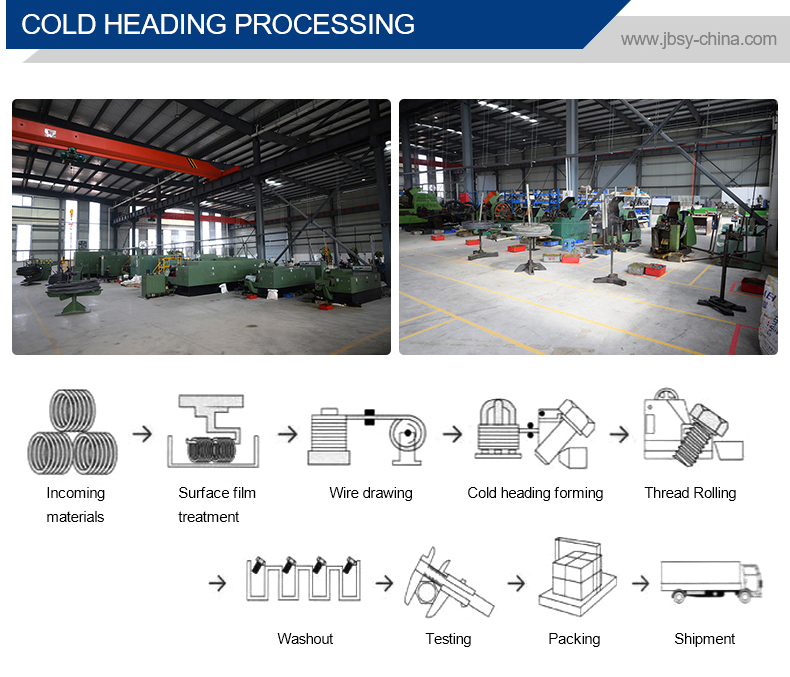
O processo de encabeçamento a frio é um dos novos processos para a maquinagem sob pressão com menos ou nenhum corte
metal. É um método de processamento que utiliza a deformação plástica do metal sob a ação de
forças externas e, com a ajuda de moldes, redistribui e transfere o volume de metal para formar
as peças ou os espaços em branco necessários. O processo de encabeçamento a frio é o mais adequado para a produção de
elementos de fixação, tais como cavilhas, parafusos, porcas, rebites, cavilhas, etc.

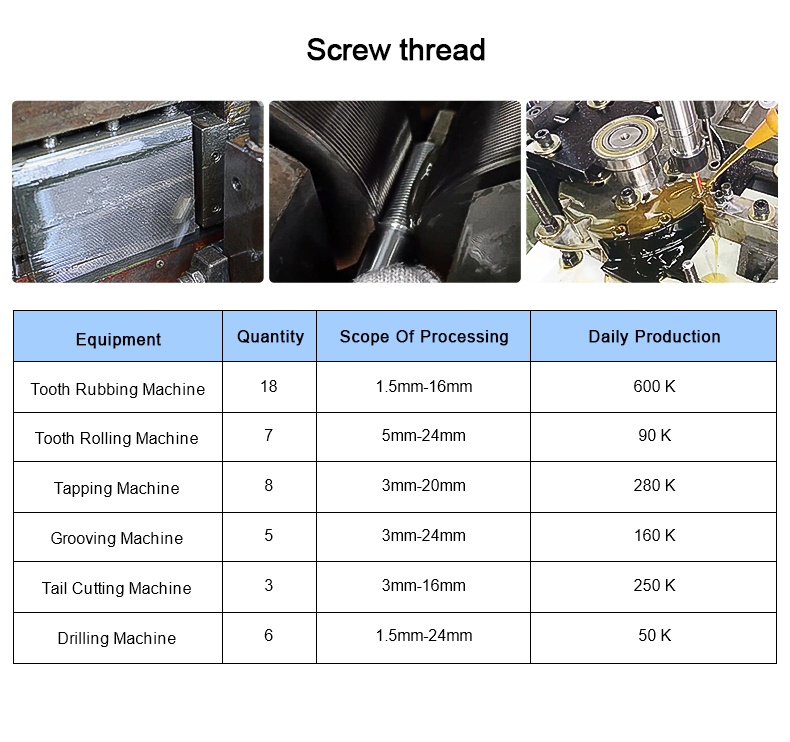
A cabeça chata porca de barril é um tipo de fixador concebido para aplicações específicas em que é necessária uma ligação escareada de baixo perfil. Segue-se uma descrição pormenorizada:
Caraterísticas:
-
Design de cabeça plana - A porca tem uma parte inferior cónica (afunilada) que lhe permite ficar nivelada com a superfície quando instalada num furo escareado.
-
Forma de barril - O corpo da porca é cilíndrico (em forma de barril), muitas vezes com rosca interna ou externa.
-
Tipo de rosca - Normalmente, possui roscas internas (roscas fêmeas) para aceitar um parafuso ou uma cavilha correspondente.
-
Material - Normalmente fabricados em aço (carbono ou inoxidável), latão ou alumínio, consoante as necessidades de resistência e de resistência à corrosão.
-
Tipo de acionamento - Pode incluir ranhuras para uma chave de fendas, uma chave hexagonal ou outro mecanismo de acionamento para instalação.
-
Acabamento - Pode ser simples, zincado, óxido preto ou revestido para resistência à corrosão.
- Porca de barril dentada de cabeça plana
Utilizações comuns:
-
Fixação escareada - Utilizado em aplicações onde é necessária uma superfície lisa e nivelada (por exemplo, mobiliário, painéis para automóveis, componentes aeroespaciais).
-
Porcas de barril em mobiliário - Frequentemente encontrado em móveis de embalagem plana (como o IKEA) para juntas ocultas e resistentes.
-
Máquinas e veículos automóveis - Utilizado em montagens onde o espaço é limitado e é necessário um fixador de baixo perfil.
Vantagens:
-
Fornece um Acabamento elegante e nivelado.
-
Distribui eficazmente a carga graças ao assento cónico.
-
Ajudas evitar o enroscamento em partes móveis.
- Porca de barril dentada de cabeça plana
Desvantagens:
-
Requer um furo escareadoque podem necessitar de uma maquinagem de precisão.
-
Pode ter menor resistência ao binário em comparação com as porcas hexagonais normais.

